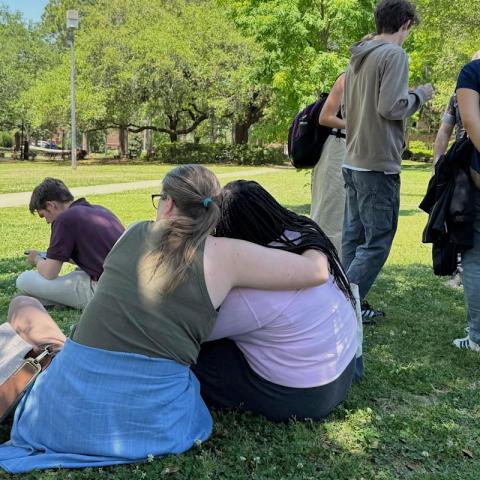On May 14, the Israeli government announced that humanitarian aid will resume for many Palestinians in the Gaza Strip. The Gaza Humanitarian Foundation (GHF) will be leading this effort with support from the U.S. and Israel. They’re set to deliver over 300 million meals in the first 90 days of operation.
The need for aid is dire. Since the cease-fire with Hamas ended on March 1, Israel has halted the flow of food, water, and medicine into Gaza, where around 2.5 million people live. The United Nations warns that many are on the brink of starvation, with about 500,000 individuals at grave risk.
GHF plans to start operations before the month ends, following discussions with Israeli officials. They intend to create secure distribution centers to ensure that aid reaches those in need without interference. Their first phase aims to assist 1.2 million people, with the capability to help over 2 million later on.
The cost of providing aid is estimated at $1.30 per meal, which includes everything from logistics to security. Hygiene kits and medical supplies will also be delivered through monitored routes to prevent aid from being stolen. Jake Wood, the foundation’s executive director, emphasized the urgency of the situation, stating, “We have a responsibility to act.”
Wood is a veteran and has significant experience in humanitarian initiatives. He co-founded Team Rubicon, a nonprofit organization that leverages veterans’ skills for disaster response, having responded to crises in Haiti, Puerto Rico, and during the COVID-19 pandemic. He knows how to get aid where it’s needed most.
Experts warn that if aid doesn’t flow soon, essential supplies will run out. A recent report from the U.N. highlights the severe food insecurity in the region. Traditional aid routes have broken down due to conflict, leaving many without access to food and clean water.
GHF has requested that Israel expedite the flow of aid while they finalize their distribution plans. They also highlighted the rising costs of essential goods; for example, the price of a 55-pound sack of wheat flour has skyrocketed to between $235 and $520 in just a few months.
The situation in Gaza is critical. Months of ongoing conflict have made it incredibly hard for people to access the necessary supplies for survival. The foundation stated that independent and transparent methods are vital to restore trust and get help directly to those in need.
Currently, Israeli airstrikes continue, complicating the humanitarian situation. Some organizations, like Oxfam, are stressing the immediate need for a cease-fire to facilitate the delivery of aid. Abby Maxman, Oxfam America’s president, highlighted the catastrophic effects on civilians, especially children, saying they are the most affected by this crisis.
As the international community watches closely, the pressure builds for both sides to find solutions that allow aid to reach those who need it most without further conflict.
For additional context on the crisis in Gaza, you can refer to reliable sources like [UN Reports](https://news.un.org/en/story/2025/05/1163131).
Source link
Top News, World, Donald Trump, Gaza, Hamas, Marine Corps, Hurricane Maria, COVID-19





















